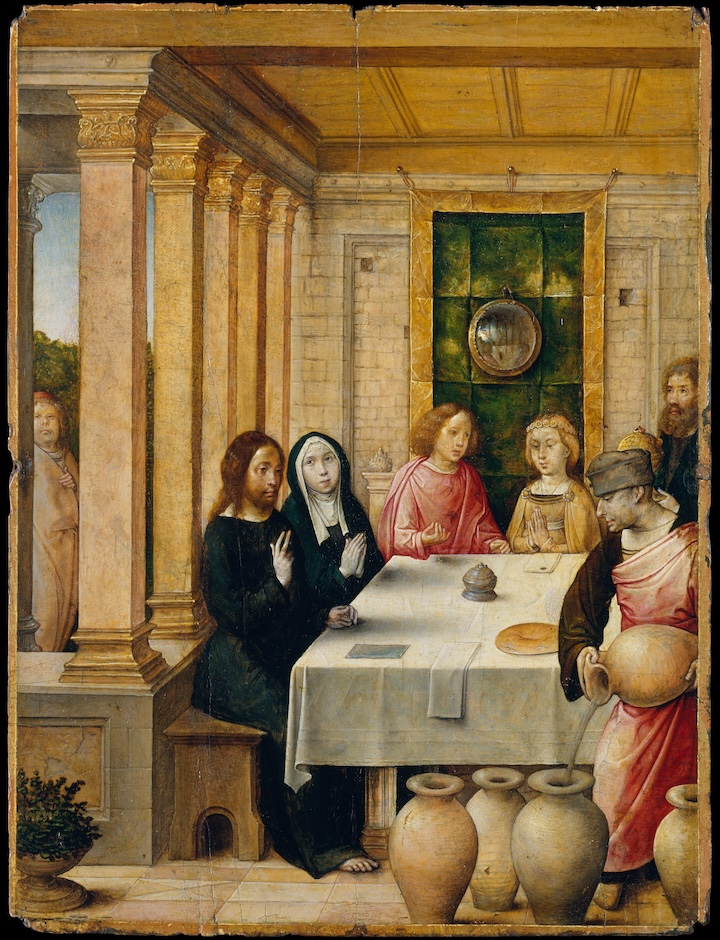The U.S. Bishops issued a statement earlier this week on the Declaration Fiducia supplicans, reassuring the faithful that “The Church’s teaching on marriage has not changed.” But to say this is to miss the point, wildly. More pertinent is whether the Church’s teaching on non-procreative sex acts has changed; also, whether by the Declaration the Church now wishes to recognize a distinct type of relationship, which it regards as good – call it “spousal friendship between members of the same sex.” Either change would mark a major shift in the Church’s teaching on human nature and, it seems, a repudiation of St. John Paul II’s theology of the body.
Let us return to a time long ago, back in 2021, when the Vatican taught that “the Church does not have, and cannot have, the power to bless unions of persons of the same sex.” More telling than the holding, however, were the three reasons given.
The first reason was that blessings are sacramentals, so that, “when a blessing is invoked on particular human relationships, in addition to the right intention of those who participate, it is necessary that what is blessed be objectively and positively ordered to receive and express grace.” But such is not the case, it taught, for relationships that involve sexual activity outside of marriage: “[God] does not and cannot bless sin.” The Vatican emphasized that the presence of good elements in such relationships could not negate this point.
In support, the Vatican cited no less an authority than an Ecumenical Council, Sacrosanctum Concilium, 61. In that passage, tellingly, the Council Fathers refer to “the liturgy of the sacraments and sacramentals.” The Vatican back in 2021 assumed, naturally enough, that since blessings are sacramentals, they are by their nature liturgical. That a blessing by a priest in a cassock at the back of a Church would be non-liturgical, in the broad sense of “liturgy”, would be an absurdity. A blessing did not need to be situated in a ritual to be liturgical.
The second reason was that blessings of persons are inherently related to sacraments, so that, if a relationship were blessed, the blessing could not fail to import the significance of marriage, regardless of the intentions of the persons involved.
The third and related reason – apparently the least important – was that the blessing of same-sex couples would create confusion in the faithful, as it would lead them to think that the nature of marriage had changed.

If the Church is to purport to do in 2023 what it said in 2021 that it could not do, these reasons must be “handled.” Fiducia, accordingly, handles the first by claiming that blessings are among the most rapidly “evolving” sacramentals. Then it identifies a new class of blessings, “pastoral” blessings (“of mercy”), which apparently are not even sacramentals. It supposes that if these blessings appear to be spontaneously sought after, and non-scripted, they will be non-liturgical.
However, already Fr. James Martin has tweeted a picture of himself in clerics at the back of a church holding up his hand in a priestly blessing over a professed “married” same-sex couple. And he himself explained the radical change of the document by saying, “Today I can do what I was forbidden to do yesterday” rather than saying, “Today a new kind of blessing was introduced, even though I remain forbidden to do what I wanted to do yesterday.”
That is, unless the meaning of a priestly blessing changes (and one may doubt that that can be accomplished by words in a document), then, the new practice seems to presuppose that non-procreative sex acts are not disordered, or that same-sex unions are a distinct type of human good ordered to God. (Note that the sin of sodomy or adultery is not mentioned in Fiducia. That mercy is emphasized does not remove the concern, as rebuking the sinner is one of the spiritual works of mercy.)
Fiducia on the other hand spends most of its time handling the third, less important reason, emphasizing that informal blessings of same-sex couples should in no way be connected with ceremonies suggestive of marriage. As I indicated, this is a false scent, a red herring. What is at issue is not whether marriage remains restricted to a man and a woman solely, but whether some other kind of union, which does not exclude sex acts, is a ‘natural kind’ (so to speak) for the human race. Fiducia says nothing to rule this out; it hardly makes sense unless it regards it as so.
Actually, what it says about marriage leaves open a door. Its teaching is that in the context of marriage, “sexual relations find their natural, proper, and fully human meaning.” Note that these words imply gradations of more-and-less. None conveys the seriousness of sexual sin. More importantly, the language supposes a dualism between “sexual activity” and marriage, as if marriage is a vehicle in which sex acts are best located. But marriage just is the institution of the sexual act.
The document as I said gives no heed to Vatican 2021’s second reason, as if the public meaning of our acts were indefinitely manipulable. What will be definitive of even a truly spontaneous blessing—the couple’s understanding, or the priest’s constantly saying to himself, I’m not sanctioning anything? Suppose the same-sex couple conceive of themselves as married, and they have the civil certificate to prove it. Whose understanding of the blessing prevails? Or suppose a father abandons his family for a trophy wife, has a child with her, and goes with her to a priest for his blessing. Can any amount of interior self-explanation on the priest’s part change the public meaning of what he does?
The Church has always offered its highest blessing to anyone who looks for it and does not care to make a point. There is this thing called The Blessing (i.e., “Benediction”).















